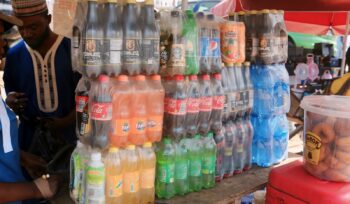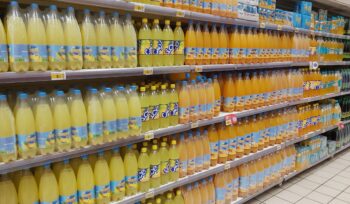- 22/09/2020
- Posted by: Julien Garcier
- Categories: Articles, Non-alcoholic beverages
Founded in 2013, Niamey, Niger-based bottled water manufacturer Belvie has gone from start-up to local market leader in less than seven years and is now intent on replicating that success in neighbouring markets.
Rohan Garg, co-founder and managing director of Belvie Beverages, said he spotted a gap in the market between cheap sachets of water and imported premium products for “a water brand focused on quality and transparency.” Water sachets are mainly produced by informal manufacturers and have little in the way of branding, while only a relatively small number of affluent consumers can afford premium products.
An Indian national, Garg has a degree in industrial and systems engineering and spent time working for the likes of Wal-Mart (in supply chain management) and Deloitte in the US before moving to Niger.
Speaking to website How We Made It in Africa earlier this year, he claimed that Belvie was able to sell its water at a price that was about 7% higher than than its local rivals by differentiating itself in terms of perceived quality. It achieved this by becoming the only local manufacturer to achieve ISO 22000 certification, enabling Belvie to demonstrate to customers that it had a food safety management system that met international standards.
Garg observed that Belvie had taken sales away from sachet water among such consumers as pregnant women and young families, claiming that “A lot of people are buying it as a health product.” He added that in a country such as Niger, “A product only targeting the affluent part of the population will not allow you to reach scale.” Building on its success of in bottled water, Belvie launched a range of carbonated beverages called Nuvo in 2018.
According to Garg, other factors in the brand’s success included spending “a lot of time talking with shopkeepers and gaining an understanding of what is motivating them to sell … and what is motivating consumers to buy,” ensuring that Belvie always has excess inventory to minimise the risk posed by supply chain disruptions, and maintaining its own delivery fleet in Niamey (which accounts for the bulk of its sales). Outside of the capital, it uses local distributors.
Earlier this month, Garg told CNN that Belvie now had a market share of “more than 40%” in Nigerien bottled water. Belvie has already begun to export to neighbouring markets, and Garg said that the next step for the brand was “to take what we have learned in Niger and become a regional champion.”
The Sagaci Research View: The success of Belvie demonstrates that a significant proportion of consumers are willing to pay a modest premium for quality, even in a frontier market like Niger. Moreover, it shows that the quickest route to success in FMCG in sub-Saharan Africa is to target the mass market, rather than the relatively small number of affluent consumers.



